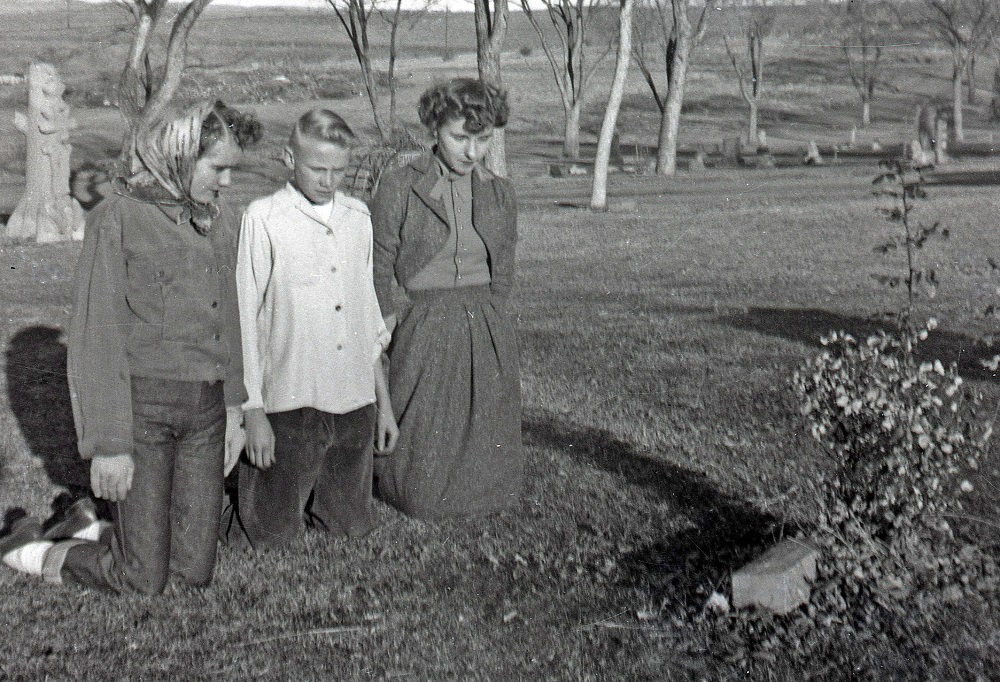 |
In 1950, three grandchildren of Bertha Whitman Conran knelt at her grave in Evergreen Cemetery, Colorado Springs: from left, Darlene and James Conran, Margie Westhues. |
Kenneth Westhues Homepage Index of resources |
Bertha Whitman Conran's essay on girls' rights — origin, discovery, dissemination Kenneth Westhues, University of Waterloo, Canada Adapted from Chapter 1 of Olive Conran Westhues, Prairie Fire (Waterloo, Ont.: K & A Westhues,
1992) and Chapter 7 of K. Westhues, ed., Where We Belong: Historical Essays
for the Family of Olive Conran and John Westhues (Glasgow, Mo., privately
published, 1997). Published on the web in 2003 in the Tributes section of the K. Westhues Homepage. Illustrations added, 2021. |
|
|
|
|
|
"As I would not be a slave, so I would not be a master"— such was the view of the country kid from Illinois, Abraham Lincoln, who became America's sixteenth president and a beacon of human equality for people everywhere. It is not surprising that Bertha Whitman (1876-1915) held a similar view. She was from the same British-origin, Protestant, plain, rural, midwestern culture as Lincoln. Indeed, she was from the same family. She was the great-granddaughter of Barbara Lincoln Crutchfield, who was a first cousin of the president, daughter of his Uncle Josiah. Bertha's father and paternal grandfather both fought for the Union in the Civil War, and the latter died in it. Bertha wrote the essay below in 1892, as a sixteen-year-old student at Pine Hall School in Montgomery County, Missouri. But almost half a century would pass before anybody but her teacher would read it. Recognizing how far the essay excelled the usual work of schoolgirls, Bertha's teacher saved it in a trunk in his attic. There it remained through the gay nineties, as Bertha grew to womanhood. It was there in 1900, when she married an Irishman named John Conran who loved her dearly; in 1902, when her daughter Olive was born; in 1910, when she moved with her husband and three children to Colorado in a desperate bid to regain her health; and in 1915, when she died of TB on the prairie homestead. Only in 1935, when the teacher himself died, was the essay found by his daughter in his attic trunk. By then Bertha's daughter Olive, my mother, was married, had five children, and lived in Glasgow, Howard County. Months passed, until Olive travelled to Montgomery County for a relative's funeral. On that occasion the teacher's daughter sought Olive out, saying she had something for her. Then she thrust into Olive's hands the essay written by Olive's mother ten years before Olive's birth. "This will mean more to you than to anyone," the teacher's daughter said. Ever since then, the essay has been perhaps the single most treasured item in the Conran-Whitman family heritage.
|